Apple iOS 6 launches September 19
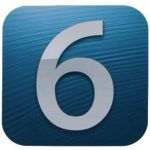
If you've got iPhone 4 or 4S, recent iPod touch or one of the two recent iPads, Apple will give you iOS 6, and you won't wait long. The Cupertino, Calif,-based company formally announced the release date, September 19, during a media event today.
New iOS 6 features include FaceTime video over cellular, Facebook integration, Passbook for buying movie tickets and other passes, shared photo streams and new maps app, among others. Apple released a developer preview in June. Perhaps most notable among the new features is Apple's homegrown maps app, replacing the one long provided by Google.
Cumulative Android device sales push past iOS for first time
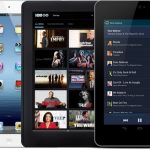
In what can only be described as a turning point for post-PC operating systems, cumulative Android device sales now exceed iOS, and in a shorter time period. Today, during a special media event, Apple reduced the cumulative number of iOS sales to 400 million -- that would be since iPhone's debut in June 2007. But yesterday, Google put Android sales at 500 million, from the G1's launch four years ago this month. The days of iOS' perennial lead are over.
Android has been on the catch-up track for better part of the year. At the end of June cumulative iOS shipments were 410 million, according to Apple. Why CEO Tim Cook put the number at 10 million less today is anyone's guess. Days before the quarter ended, Google put cumulative Android shipments at 400 million. A few months earlier: 365 million and 300 million, respectively. Daily Android activations now total 1.3 million, up from 900,000 in June, according to Google.
Sarcastic liveblogging of Apple's iPhone event - Get it here

Today, gadget tastemaker Apple is expected to unveil a host of new products, including a new iPhone, new iPods, and perhaps even an update to the bête noire that is iTunes. In all likelihood, the "iPhone 5" will be the scene-stealer of this event, which will add some small, incremental changes to the obnoxiously popular device. The changes documented herein are sure to be labeled as life-changing and essential by the bike-riding gentrification brigade, and be labeled as Android copies by the cloak-wearing dungeon masters. Since we've sat through six different iPhone unveilings, we've decided to call this one as we see it...
Today's event begins at 10:00 am PDT (1:00 pm Eastern), and all updates appear in reverse chronological order (i.e. newest posts first), and yes, you do actually have to refresh the page.
I would end my boycott if Apple stopped bullying others
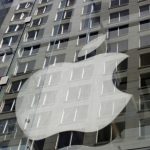
Apple is on my mind again, with the company hosting a big media event tomorrow presumably to unveil iPhone 5. I'm not seriously thinking about buying the smartphone, certainly not sight unseen. I'm super satisfied with Galaxy Nexus -- if not, I'd move to a LTE Android, perhaps HTC One X or Samsung Galaxy S III. Rather, iPhone 5 is good time to assess my personal Apple boycott, where I sold off all my fruit-logo gear in protest of patent bullying.
Until July, I was a long-time Apple user, starting with the December 1998 purchase of the original Bondi Blue iMac. Then about six months ago, Apple's persistent competition-by-litigation tactics finally made me mad. I also had grown sick of Apple media bias that borders on the insane. How crazy? Yesterday, Washington Post explained "How Apple’s iPhone 5 could singlehandedly rescue the US economy". Bad is worse -- today, extending this economic lift to US presidential elections, Nextgov (a product of the National Journal Group) asserts: "How the iPhone 5 could help re-elect Obama". These are people I really don't want to associate with. (Say doesn't the president use BlackBerry?)
Kindle Fire HD burns Microsoft more than Apple

Following Amazon's Kindle Fire HD announcement, a reader reminded me of a prediction I made at the start of the year: "If Apple gives up its position of industry leadership in 2012 the only company capable of assuming that role is Amazon.com". I stand by those words -- Amazon is really bringing the fight to Apple -- but the most important part is "if Apple gives up its position", which it clearly hasn’t, at least not yet. The real loser here, in fact, is not Apple but Microsoft.
I could be wrong about this but I don’t recall any pundits (me included) predicting that Amazon would introduce a larger format tablet, yet that’s exactly what they did. The larger Kindle Fire HD with its built-in content and app ecosystem (and that killer 4G data package!) is a viable iPad competitor at a terrific price and puts real pressure on the Cupertino, Calif.-based company. Will Apple match the price? I don’t think so. That’s not the game they want to play. But the game is on, nevertheless, and users can only benefit from competition.
Kindle Fire HD is bad for Android, worse for iPad
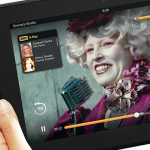
Google is in a tough spot. Apple suddenly looks like an ally now that Amazon has unveiled Kindle Fire HD. Both companies stand to lose big time should the tablet achieve any meaningful sales success. Google Play doesn't offer strong enough ecosystem to battle with either iPad or Kindle Fire, but Amazon's tablet is more likely to scorch Android's earth. Amazon's vertical integration -- store, software and services -- is tight, as good as Apple's and in many respects superior. No matter which wins, Android loses.
Here's the problem: Only Amazon has done any meaningful Android customization on tablets, creating a curated experience similar to Apple's. Like iOS, Amazon Android is tightly vertically and horizontally integrated with siloed services. Kindle Fire is designed to mainly work within the Amazon content/retail sphere and little outside it. Amazon runs its own stores -- everything from apps to movies -- while shunning Google Play. Meanwhile, Kindle Fire supports the custom Silk browser rather than the stock Android one or Chrome. Amazon Android is a competing platform/ecosystem within the larger, more open one Google champions. (The original Kindle Fire is customized Gingerbread and new HD models customized Ice Cream Sandwich.)
Android and iOS shut out Windows Phone, BlackBerry
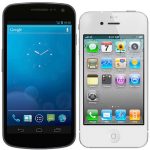
For the three months ending in July, Android and iOS combined US smartphone subscriber share reached 85.6 percent, according to comScore. That's 3.4 percentage points higher than April. Meanwhile, Research in Motion and Microsoft mobile platforms receded to 9.5 percent and 3.6 percent share from 11.6 percent and 4 percent, respectively. While comScore combines defunct Windows Mobile and Windows Phone, we henceforth refer to both using the latter name.
The smartphone market clearly consolidates around Android and iOS, leaving even less share for Windows Phone or BlackBerry. Android and iOS will soon face the new batch of Windows Phone 8 handsets, including the Nokia Lumia 920 announced today. However, as it stands now, Microsoft's mobile operating system has plenty of ground to cover to even count as a worthy adversary to the two major platforms.
Judge Koh should vacate the Apple-Samsung verdict

Jurisprudence demands that US District Judge Lucy Koh right a terrible miscarriage of justice occurring in her courtroom. The Apple-Samsung patent dispute is nothing but a mock trial. The jury ignored key instructions, failed to complete a crucial checklist, made egregious errors on the final verdict form and reached a verdict after 21 hours of deliberations. The foreman misunderstood one of the concepts fundamental to the case -- prior art -- leading the jury astray. Then there is Judge Koh, who prevented Samsung from presenting key evidence or witnesses that could have made its defense and case against Apple more credible.
Apple claims that Samsung copying iOS device designs and patents causes irreparable harm. But the greater injustice is against the South Korean manufacturer, which is branded a copycat and thief -- all while the victim of terrible misreporting by analysts, bloggers, journalists and other writers. Samsung suffers irreparable harm here, not Apple. Judge Koh let this travesty occur on her watch. She should be ashamed and do what this malfeasance demands: Set aside the verdict. Best scenario: She should deny all claims by both parties, and let them sort it all out on appeal. Acceptable: Order a new trial. She let the case get out of control. Time is long past to reel it in.
Apple slaps a gigantic number five on its September 12 press conference
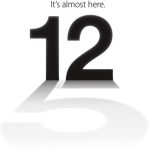
Apple on Tuesday officially distributed its invitations to the media for an event on September 12 in the company's usual spot for press conferences, the Yerba Buena Center for the Arts in San Francisco, California.
The big number twelve on the invitation is casting a shadow that is shaped like the number five, which has naturally lead many to believe this is the event for the "iPhone 5," or fifth generation of Apple's iPhone. The iPhone 5 moniker has been in use since before the iPhone 4S was released, but as Dave Caolo of the Unofficial Apple Weblog jokingly pointed out on Twitter, it could just as easily mean a 5" iPad.
Hacktivist group #Antisec releases a million Apple device IDs, wonders why FBI had them

#Antisec, The loosely-organized black hat security collective formerly known as Lulzsec has released a file containing a million and one (1,000,001) Apple Unique Device Identifications (UDIDs), and their related APNs (Apple Push Notification Service) tokens, as well as a certain amount of personal user information. The group claims the information was not taken from Apple directly, but rather though a vulnerability exploit on FBI Agent Christopher K. Stangl last March.
The group claims there were actually more than twelve million UDIDs on Stangl's Dell Vostro notebook, as well as an incomplete list of zip codes, mobile phone numbers, home addresses, and whatever personal detail fields could be obtained. Antisec said there were no other files in the same folder that mention the list or its purpose.
Samsung is dateless and desperate on prom night

A soap opera. That's how I would describe this week's revelation that Samsung is cozying up to Microsoft and the forthcoming Windows Phone 8. Still stinging from its recent court loss to Apple, the South Korean juggernaut appears to be hedging its Android bets by embracing one of the two remaining underdogs in the mobile OS race (the other being Research in Motion).
No matter how you slice it, Samsung's executives are running scared. And who can blame them? Apple will do whatever it takes to crush the little green man from Mountain View (it's a Jobsian legacy thing). And the fact that its chief hardware rival is getting squeezed in the process is simply gravy.
Smartphones shipments soar in China, Android benefits
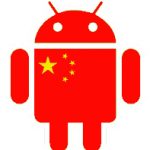
CEO Tim Cook describes China as Apple's second-most important region. For good reason. IDC predicts that smartphone shipments to the People's Republic of China will pass the United States this year. There's the question, which benefits more: Android or iPhone/iOS?
"The PRC smartphone market will continue to be lifted by the sub-US$200 Android segment", Wong Teck-Zhung, IDC senior market analyst, says. "Near-term prices in the low-end segment will come down to US$100 and below as competition for market share intensifies among smartphone vendors. Carrier-subsidized and customized handsets from domestic vendors will further support the migration to smartphones and boost shipments. Looking ahead to the later years in the forecast, the move to 4G networks will be another growth catalyst".
Samsung is such a copycat
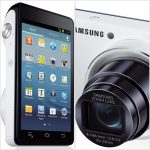
Well, I must agree with the jury in the Apple-Samsung patent trial, after seeing the shocking look-a-likes the South Korean electronics giant announced yesterday during IFA Berlin. Have you seen these Apple rip-offs? Samsung simply is shameless in its copying.
For example, there's a new phone with large screen and stylus, as well as another with big zoom lens. The audacity of Samsung to take features from iPhone or iPad and offer them on its devices. The company just thumbs its nose -- or whatever gesture they use on the Asian peninsula -- at the American jury and US District Judge Lucy Koh.
Why we love Steve Jobs
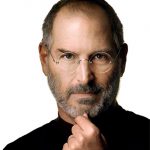
In about six weeks, the InterWebs will flood with posts commemorating a tech visionary's passing. Steve Jobs died on Oct. 5, 2011. A year ago last week, he stepped down as Apple's CEO. Jobs is a colorful, iconic, flawed figure, who stands before us something more than mere mortal. That's because his public life has a literary quality that cuts to the core of our humanity.
I got to thinking more about this today following a discussion with colleague Tim Conneally and questions answered for a CNN reporter about Microsoft (apologies to him, I removed those sentences and use them here). I asked Tim today: "Why is Steve Jobs so endearing? Redemption. What's that term in fiction about the hero's journey? Steve Jobs followed the path in real life". There's something Shakespearean, too -- the fatal flaw that humbles greatness. Mixed together, his story should be a great fictional work. But it's better and haunting being real life.
5 reasons the Apple-Samsung ruling is GOOD for everyone
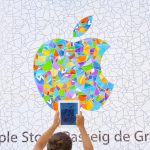
The outcome of the recent Apple vs Samsung trial isn’t particularly surprising -- the American company was always going to benefit from home-court advantage -- but the comprehensiveness of the victory shocked a lot of people, and at a stroke changed the smart devices industry for good. Yes, Samsung will appeal, and might succeed in overturning some of the findings or reduce the amount owed Apple (although, equally, the South Korean company might end up paying even more as the wilfull infringement finding is very damning). But there’s no question the result, as it stands, has repercussions not just for Samsung but for several of Apple’s other rivals.
My colleague Mihaita Bamburic claims that the ruling is bad for everyone, and while his position has merit, I view things differently. I see the result as having a positive impact in the long term, and here’s why.
© 1998-2025 BetaNews, Inc. All Rights Reserved. Privacy Policy - Cookie Policy.